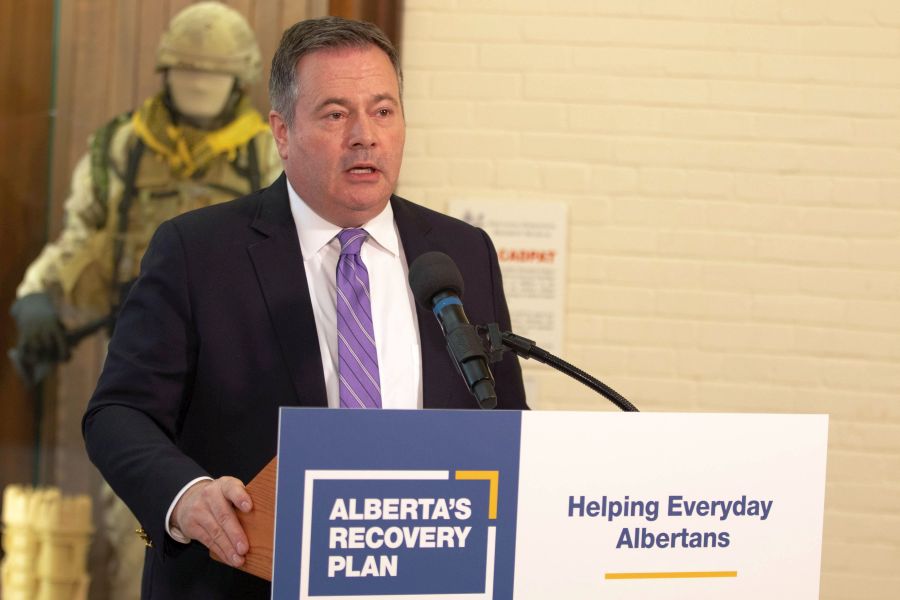By Grant Cree
The Alberta government tabled new legislation on April 21 to increase unpaid job leave for military Reservists and people who suffer the loss of a child from miscarriage or stillbirth.
Premier Jason Kenney and other dignitaries delivered the announcement at the Prince of Wales Armouries in Edmonton. Bill 17, the Labour Statutes Amendment Act, eliminates the current 20-day cap on the number of unpaid days military Reservists can attend training. The bill also includes parents who have a miscarriage or stillbirth, so they are eligible for three unpaid days of bereavement leave from work.
“We must honour and support those who uniformly serve our country,” said Kenney. “The introduction of this legislation will provide stronger protection for parents who have lost an unborn child due to stillbirth or miscarriage, and longer job protection for Reservists who have more extended training or military service periods.”
The current bereavement leave enables employees – who worked at least 90 days for the same employer – to take up to three days of unpaid leave per year when a family member dies without worrying about losing their job.
The current military Reservist leave enables employees – who worked at least 12 consecutive weeks for the same employer – to take up to 20 days in unpaid leave to participate in annual training and Canadian Armed Forces operations.
According to Labour Minister Kaycee Madu, this 20-day cap means Reservists sometimes use their vacation days to complete their military training. “Reservists perform valuable services for our province and country,” said Madu. “We want to honour their commitment and sacrifice by allowing them enough time to train for the many challenges they face.”
Carolyn Patton is the Alberta Chair for the Canadian Forces Liaison Council (CFLC), a national organization that works with the Department of National Defence. She spoke at the news conference about the CFLC and how Bill 17 will impact Reservists.
Patton noted the CFLC comprises business leaders and Reserve military members who act as a bridge between employers to highlight the value of employing Reservists.
“Reservists are employees, co-workers, students, and neighbours,” said Patton. “They bring valuable skills to their civilian workplaces, such as leadership, commitment, strong communications, teamwork and hard work.”
Patton described Bill 17 as welcome news for Alberta Reservists. “Removing the 20-day limit provides Reservists greater flexibility to pursue civilian career paths without giving up on their mission of serving their country,” she said.
“When we as a society take steps to support our Reservists, we help ensure the dedicated men and women of our military can support us. This bill will provide an opportunity to further their military training and develop transferable skills that enhance the workplace.”
Captain (Ret’d) Rick Dumas also spoke about what Bill 17 means to Reservists. The former soldier joined the Reserves in 1977 and served 42 years in the military, most of it with Princess Patricia’s Canadian Light Infantry.
“The vast array of employers can do more to support the Reservists,” said Dumas. “There is payback for the employer by character building and enhancing unique skill sets unavailable elsewhere.”
Dumas noted that a trained private soldier can provide leadership within a civilian environment, with an emphasis on teamwork. “Employers give up a soldier for whatever time it takes, getting a better trained and fulfilled employee in return,” he said. “Supporting those that serve us makes the civilian employer an actual force multiplier and a community asset.”
The changes to leave for bereavement and Reservists in the new labour law will be implemented when Bill 17 receives royal assent.


More Stories
MCHS Students Showcase Skill and Determination at Skills Alberta Provincial Competition
Morinville student creates powerful poster for Red Dress Day
Deanna Stang Appointed as Deputy Mayor